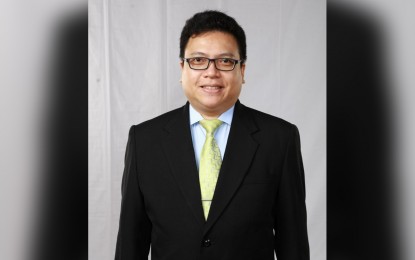
RCBC chief economist Michael Ricafort
MANILA – An economist forecasts sustained improvement of foreign direct investments (FDIs) to the Philippines as economic and credit fundamentals gain ground, even amid the rise in coronavirus disease 2019 (Covid-19) cases.
The Bangko Sentral ng Pilipinas (BSP) on Monday reported the 98 percent year-on-year rise of net FDIs in October 2021 to USD855 million, the fifth consecutive month of increase, bringing to USD8.1 billion the net FDI inflows in the first 10 months of last year.
"Thus, FDIs remain one of the bright spots for the Philippine economy, in view of their continued double-digit growth rates in recent months, alongside the near-record highs in exports, imports, OFW (overseas Filipino workers) remittances, as well as manufacturing gauge among pre-pandemic highs as the economy reopens further from the lockdowns earlier in 2021,” Rizal Commercial Banking Corporation (RCBC) chief economist Michael Ricafort said in a report Monday night.
Ricafort said demographics, acceleration of the vaccination program, and booster shots against Covid-19; and implementation of the Alert Level System, which is “considered a de facto reopening of the economy with the shift towards smaller scale/granular lockdowns”; are expected to boost the growth of FDIs to the country.
He also cited the Corporate Recovery and Tax Incentives for Enterprises (CREATE) law, the record-low interest rate, and continued reaffirmation of the country’s investment-grade ratings.
“Better economic recovery prospects and increased infrastructure spending to pump-prime/stimulate the economy, as well as part of preparations for the May 2022 elections, also helped attract more FDIs,” he added.
Ricafort said global economic prospects remain positive since some developed countries that are among the primary source of FDIs to the Philippines are moving towards achieving population protection.
He said FDIs are among the pillars of a country’s economic recovery program “since they create more jobs/employment and other business/economic activities in the country.”
“The need to better hedge global supply chains of some multinational/global companies would also lead to more FDIs locating in the country as an attractive market and to access the country’s free trade agreement (FTA) partner countries in the Asia Pacific region,” he said.
Ricafort said FDIs would also increase further should the country become part of the Regional Comprehensive Economic Partnership (RCEP). (PNA)
